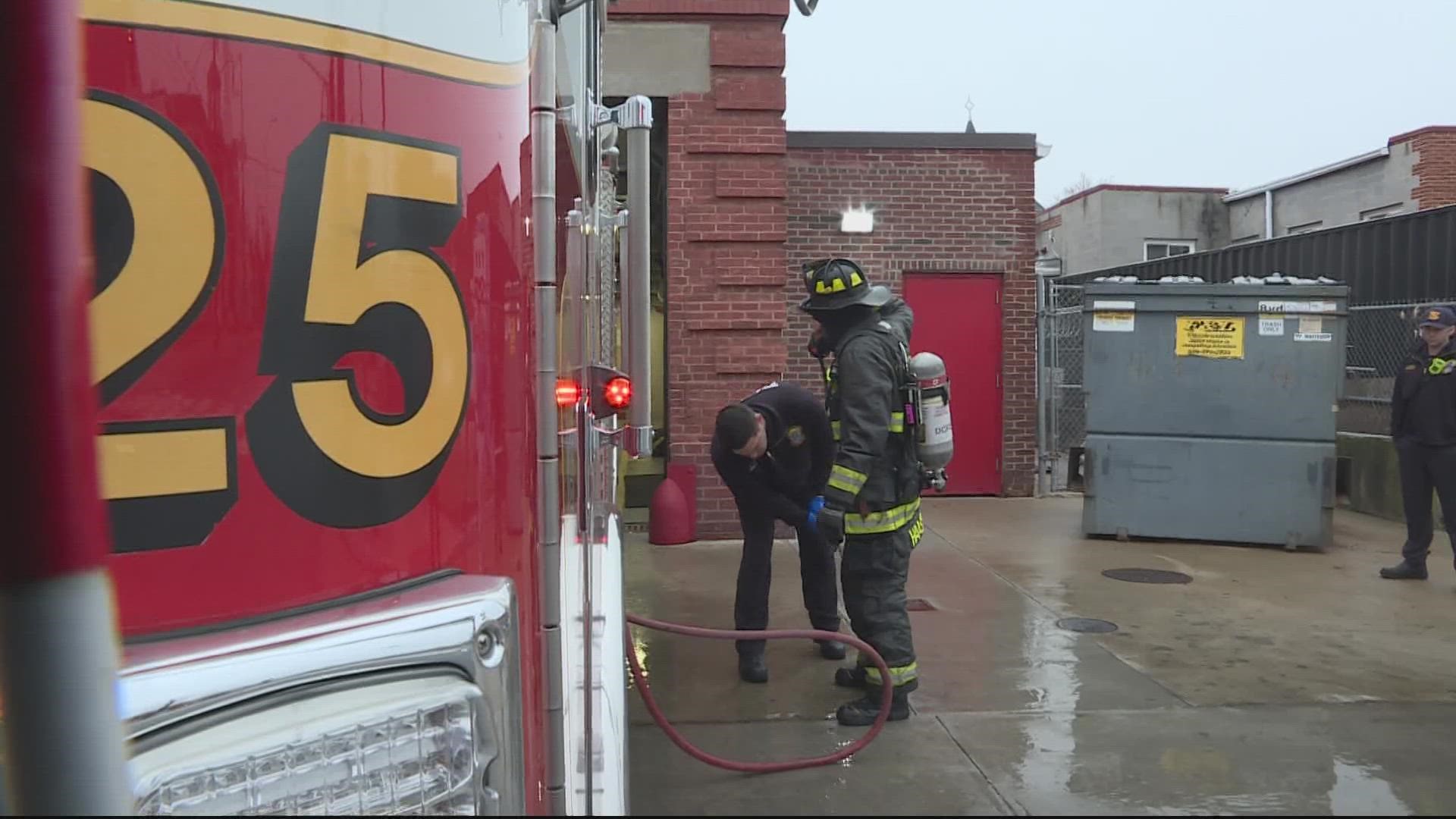CAPITOL HEIGHTS, Md. — Maryland Congressman Glenn Ivey (D) is among several congressional leaders to introduce legislation to protect firefighters from dangerous chemicals that can lead to cancer and other dangerous health effects.
Ivey joined Reps. Debbie Dingell (D-MI), Suzanne Bonamici (D-OR), Sam Graves (R-MO), Tom Kean, Jr. (R-NJ), Dina Titus (D-NV), Anthony D’Esposito (R-NY) and Brian Fitzpatrick (R-PA) to introduce the Protecting Firefighters and Advancing State-of-the-Art Alternatives Act (PFAS Alternatives Act). The legislation would support development of next-generation PFAS-free turnout gear for firefighters and better protect firefighters from the dangers of their work.
Recent studies have shown that all three layers of fire fighter turnout gear contain Per and Polyfluoroalkyl Substances (PFAS), a class of fluorinated chemicals known as “forever chemicals.” PFAS chemicals are persistent, bioaccumulative, and toxic, and are linked to harmful human health effects, including reproductive and developmental harms, weakened immune systems, and cancer – the leading cause of fire fighter death.
“First responders deserve first rate gear. They put their lives on the line every day to save ours. We must not make those who risk their lives wear even riskier equipment and handle even more dangerous materials," Ivey said in a statement. “PFAS are directly linked to cancer. And as a kidney cancer survivor, I know the hardship, uncertainty and fear any family would experience being exposed to cancer causing materials. This bill will save our firefighters from this exposure and is a good way to show our appreciation to the men and women who are ready to rush into danger when others dodge it."
The PFAS Alternatives Act would:
- Accelerate the development of PFAS-free turnout gear through research, development, and testing of PFAS-free turnout gear materials.
- Facilitate the development of safer turnout gear materials that reduces the dangers firefighters face, including enhanced protection against primary and secondary exposure to particulates and byproducts of combustion; reduced maintenance that includes contamination resistance and greater ease of cleaning; visible warning indicators to alert firefighters to hazardous exposures or the need for decontamination; and consideration of body composition in turnout gear design.
- Support guidance and training for firefighters on best practices for reducing harmful exposures through the proper wearing, cleaning, and caring for next-generation turnout gear.
- Involve the firefighting industry in the development process by requiring grant applicants to utilize the leadership, experience, and knowledge of firefighters to ensure the next-generation turnout gear will be both effective and practical for the everyday demands of firefighting.
The PFAS Alternatives Act would also authorize $25 million annually for each of fiscal years 2024 through 2028 to support the development of new materials, and an additional $2 million annually to support guidance and training.

